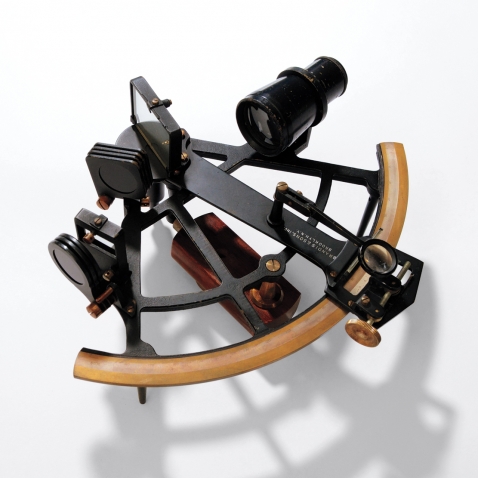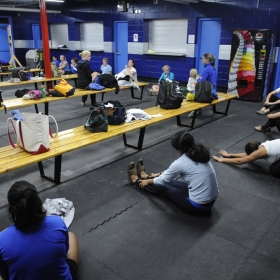Professor of Astronomy Dick French sits in his office in Whitin Observatory and delicately pulls out a sextant, dating from the late 1800s. The brass instrument was used to determine latitude and longitude by measuring the altitude of the sun or other celestial object above the horizon. This particular sextant, now in the observatory’s collection, belonged to Lady Margaret Huggins, an astronomer who was the wife of Sir William Huggins, perhaps the most famous astrophysicist of the 19th century. But this is not just a piece of scientific history. French actually used the instrument to “shoot lunars” last summer while he was aboard the Charles W. Morgan, a restored whaling ship. He measured the angle between the sun and the moon to determine the ship’s location, just as whaling navigators did.
French has long reveled in the whaling world of Herman Melville: “I find Moby-Dick hilarious and read it at least once a year,” he says. “It has been a dream of mine to travel on a square rigger.” During his day and night aboard the Morgan with a group of artists, videographers, and historians, French sailed from Provincetown, Mass., to the nearby Stellwagen Bank National Marine Sanctuary, where whales gave the trip an authentic flavor. (The crew was armed with cameras, not harpoons.)
French’s onboard navigation project—to pinpoint the ship’s latitude and longitude with the historic instruments he brought—also gave him a window on the whaling world of old. “We don’t know what it’s like to be lost anymore,” he says. “We just pull out a GPS, but it was a frighteningly real part of the world at sea. I wanted to make a small connection with the feeling of relying on our own observations to know where we are.”








We ask that those who engage in Wellesley magazine's online community act with honesty, integrity, and respect. (Remember the honor code, alums?) We reserve the right to remove comments by impersonators or comments that are not civil and relevant to the subject at hand. By posting here, you are permitting Wellesley magazine to edit and republish your comment in all media. Please remember that all posts are public.